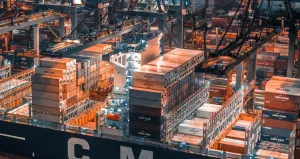Over a month into 2022, the global supply chain crunch remains a problem. At key points of production around the world, a combination of the continued pandemic and a variety of localized factors have hindered the recovery of companies’ ability to deliver goods to consumers.
These challenges have driven up prices and, as a result, contributed to inflation. In response, politicians in developed democracies are trying to protect against supply chain shocks by promoting domestic production and investment.
This is particularly true of computer chips. In Germany, for example, regulators prevented a Taiwanese firm from purchasing a German producer of chip components. With the help of government subsidies, Sony is partnering with the Taiwan Semiconductor Manufacturing Company to build a semiconductor plant in Japan. And in the United States, the Senate has passed legislation to spend $52 billion to spur chip production at home.
However, the solution to our supply chain woes isn’t quite so simple as bringing production of key goods home. First of all, policies to “reshore” or “onshore” production, as this is called, will have no immediate bearing on inflation. It would take years, perhaps even decades, to build the necessary domestic productive capacity. Since democratic politicians feel the most pressure to act when crises are happening and acutely felt, it’s somewhat difficult to imagine these long-term projects will be their chief focus when COVID-induced price and supply pains abate.
Perhaps more importantly, even if policymakers did possess the follow-through to reshore production, it’s not clear this would actually address the problem at hand. Consider semiconductors—the raw materials used to manufacture them come from a vast array of countries. There are a host of advantages to facilitating the growth of domestic semiconductor industries, but as long as many of chips’ raw components are most readily available in east Asia, domestic production will need global trade. To truly protect against international supply chain shocks this way would require so many domestic industries that they would crowd one another out, competing for a dwindling pool of labor and resources.
This isn’t to say, though, that the status quo is fine. Long and complex supply chains emerged in the wake of late-20th century deregulation, as corporations outsourced manufacturing to countries where labor was cheap. At the same time, those companies sought to minimize the number of items and time they are maintained in reserve storage, the idea being that maintaining a tight margin between expected business and realized business would cut costs. The combination of these strategies culminated in today’s precarity, and that will probably only worsen as world politics becomes less stable and shocks more frequent.
Good industrial policy that generates the domestic development of in-demand goods and high quality jobs has its place in any democracy, but it should be disentangled from the idea that it alone can protect us from the fragilities of global exchange. If there’s reason to take heart, it’s that people are paying closer attention to the supply chain problem. They may not always agree as to how it should be resolved, but waking from our stupor is an important first step.
Subscribe to SpectaclesFor more from us on supply chains and inflation, make sure to check out our previous coverage:






Comments
Join the conversation